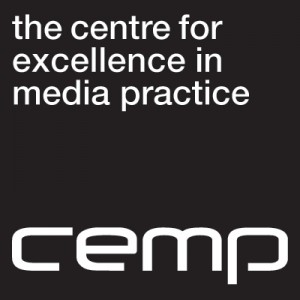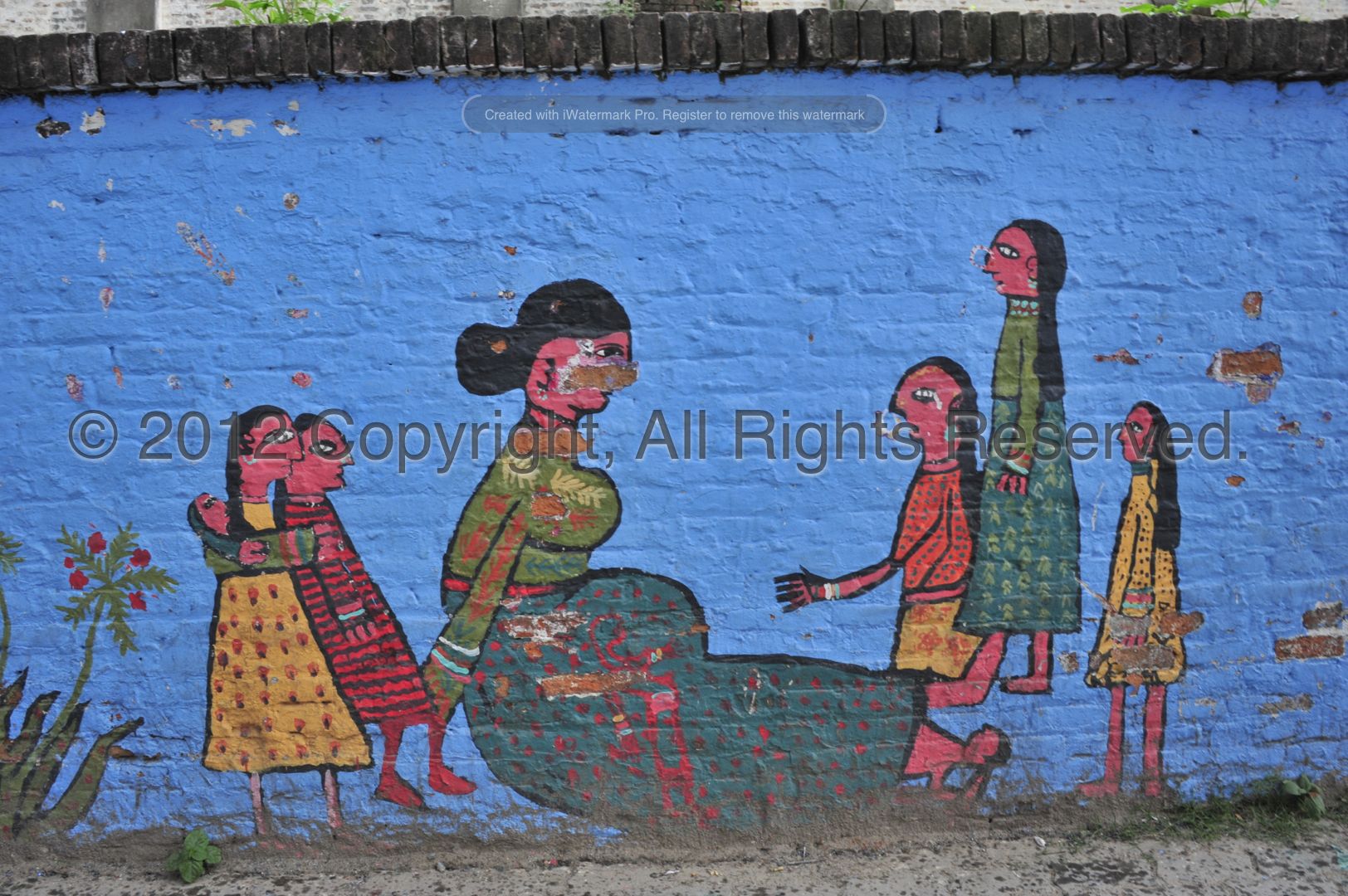
Postgraduate International Sporting Event – 7th August 2013

Latest research and knowledge exchange news at Bournemouth University

The BFX Competition is on now!
Following our Fusion-funded trips across the country to publicise the event we now have ten teams (54 individuals) are living on campus as they work on producing a 30 second animated or VFX sequence. The teams, which were shortlisted from an original list of 23 are being mentored by professionals from top Soho studios; MPC, The Mill, Framestore, Double Negative, Cinesite and Hibbert Ralph Animation. The work being produced by the teams covers a range of styles and uses many different production techniques, including live action, green screen, 2D animation, 3D CGI, particle effects, real world simulation and everything in between!
For the competitors, the interaction with people from other HE institutions and the Soho studios has made everyone raise their game and focus on genuine professional practice. We are now just about halfway through; all the work looks amazing and is way beyond everyone’s expectations – which means that the screening in September at the BFX Festival should be a huge success!
http://www.bfxfestival.com/competition/
http://www.facebook.com/groups/bfxcompetition/
In collaboration with Bournemouth University, Professor Kathleen Galvin of the Faculty of Health and Social Care, University of Hull has been successful in attracting a grant from the Burdett Trust for Nursing to apply a new theoretical framework for the purpose of ‘humanising services’ in two clinical settings. The experience of dignity is linked to what makes people ‘feel human’. Conversely, what leads to dehumanisation and therefore loss of dignity needs to be understood and acted upon in meaningful service improvement. (Patients Association, 2009; 2012). Using a lifeworld orientation and grounded in phenomenological philosophy eight key considerations that are relevant to the challenge to improve peoples’ experiences of the human dimensions of services have been defined (Todres et al., 2009; Galvin & Todres, 2012). These are not detailed lists of ‘do’s’ and ‘don’ts’ or abstract generalities such as the need for more ‘user /customer focus’ or ‘choice’. Rather, they are eight dimensions about what makes a person feel human, which could help nurses, with service providers, to effectively focus their leadership when improving services to enhance dignity in care. The team from University of Hull, Professor Steven Ersser, Dr Fiona Cowdell, Professor Roger Watson, Jane Wray, Kathleen Galvin and the team from Bournemouth University, Professor Les Todres and Dr Caroline Ellis-Hill are interested in what older people with long term skin conditions (being treated at a dermatology outpatient clinic) and people who have had a stroke (being cared for in a stroke rehabilitation unit with outreach service) point to that would make human perspectives more central in treatment. Our key practice partners include: Dr. Shernaz Walton, Consultant Dermatologist, Hull and East Yorkshire, NHS Trust and Dr Damien Jenkinson, National Stroke Lead, Royal Bournemouth Hospital Trust. Within these two settings, dermatology clinic and a stroke rehabilitation unit, a tripartite humanising improvement team group comprising older service users, nurses, and academics will engage in a robust ‘humanising improvement’ process that will be evaluated.
Galvin, K.T. & Todres, L (2012) Caring and Well-being: A lifeworld approach. London: Routledge
The Patients’ Association (2009) Patients…not numbers, People…not statistics.
The Patients’ Association (2012) Stories from the present, lessons for the future.
Todres, L., Galvin, K. and Holloway, I. (2009) The humanisation of healthcare: a value framework for qualitative research. International Journal of Qualitative Studies on Health and Well-being, 4, 68-77.
 The following opportunities have been announced. Please follow the links for more information:
The following opportunities have been announced. Please follow the links for more information:
Please note that some funders specifiy a time for submission as well as a date. Please confirm this with your RKE Support Officer.
You can set up your own personalised alerts on ResearchProfessional. If you need help setting these up, just ask your School’s RKE Officer in RKE Operations or see the recent post on this topic.
A student from the Netherlands, Coco Sips, has spent time recently in Bournemouth and Dorset learning about LGBT teens and particularly those isolated in rural settings. Her study had resonance with the film, Rufus Stone, and so Coco sought the advice Executive Producer and Lead of the Gay and Pleasant Land? Project, Dr Kip Jones, when planning her study. Jones commented: ‘Although the main characters in Rufus Stone are in their seventies at the end of our film, the consequences of their youth are very much the driving forces of their lifetimes and the film. We hope to continue to explore LGBT youth through community connections and issues of social inclusion in a follow-up study now under consideration’.
Sips also sought advice from Intercom Trust, a organisation for LGBT people in the south west penisula, that was central to the earlier Gay and Pleasant Land? Project on isolated older lesbians and gay men in rural south west England. Coco then worked closely with a local LGBT Space Youth Project‘s organisers and teens to produce her report and a short video, Into SPACE.
In the film, young LGBT (Lesbian, Gay, Bisexual and Transgender) youth tell their story about feelings of acceptance and/or social exclusion living in the rural area of Dorset, Southwest of England. The film was produced by Coco Sips as a part of her thesis project, “Social Exclusion amongst young LGBT people living in Rural Dorset” and performed on behalf of Space Youth Project, a non-governmental organization in Dorset.
The film Into SPACE can be viewed here.
 I am thrilled that the MRC will be making a special trip to BU to inform us of what will be released under the Health programme in Horizon 2020 on October 7th!
I am thrilled that the MRC will be making a special trip to BU to inform us of what will be released under the Health programme in Horizon 2020 on October 7th!
The session (10- 12:30) will provide you with the opportunity to hear the latest developments in Horizon 2020 and complementary funding programmes which are most relevant for healthcare researchers, businesses and SMEs, together with a landscape of the UK based support systems and networks for SMEs and industrial engagement.
 As the programme is looking for specific academia-SME collaboration we have also invited a number of SMEs to this event. A networking lunch will be followed by several 30min one-to-one sessions (from 1:30)with the MRC representative.
As the programme is looking for specific academia-SME collaboration we have also invited a number of SMEs to this event. A networking lunch will be followed by several 30min one-to-one sessions (from 1:30)with the MRC representative.
Places are limited – you can reserve your space and book a one-to-one by emailing Dianne Goodman before October 1st.
Many congratulations to HSC’s Dr Will Haydock, who has had an article published on the prestigious LSE Policy and Politics blog. The post, “Before we start to think about ‘what works’, even on alcohol policy we need to know what we’re trying to do”, draws on Will’s research on drug and alcohol use, to explore the role of the alcohol industry in policy making.You can read the full article on the LSE blog.
Aside from Will’s research activities at BU, he also works for the Dorset Drug and Alcohol Action Team. Using these combined skills, Will recently made a fantastic contribution to the Festival of Learning by convening a one-day workshop on Binge Bournemouth? Making changes in young people’s drinking practices. You can learn more about Will’s work on his staff profile pages, Academia.edu and you can follow him on twitter.


The updated CEMP bulletin is here.
CEMP Cluster bulletin and agenda 25.7.13
Whilst there is no cluster meeting to review this, due to annual leave colleagues are encouraged to have a look since there are a number of good ‘leads’ here and several imminent deadlines for calls people have identified for applications.
Next academic year, we’d like to encourage colleagues to approach CEMP to provide support for developing research ideas into projects or matching proposals to funding, as well as responding to the bulletin items.
The Centre for Intellectual Property Policy & Management (CIPPM) received a grant from AHRC to carry out a two-year research project on “Evolution in music publishing: economic strategies, business models and copyright”. A team of researchers coordinated by Professor Ruth Towse (Co-Director of CIPPM) will analyse the strategies of the music publishing industry over a long period of time as it adapted its business models to new technologies and legislative changes. The analysis is expected to provide new perspectives into the challenges faced by the UK creative industries in relation to digital technologies and the Internet. The research project is a partnership between CIPPM and Birkbeck College, University of London, and will be carried out in close collaboration with CREATe, the Centre for Creativity, Regulation, Enterprise and Technology at the University of Glasgow.
 The Mike Baker Doctoral Programme is now open and has a deadline of 23 September 2013.
The Mike Baker Doctoral Programme is now open and has a deadline of 23 September 2013.
Funding is avaiable for the full costs of one PhD studentship (or 50% of the costs of two PhD studentships) to develop research and an evidence-base in higher education practice and policy, with an impact across the sector. The proposed project should be discipline-specific learning and teaching research or interdisciplinary/generic pedagogical research and should have a clear benefit to either practice or to policy on practice. Details of HEA disciplines can be found from the discipline based web pages. The supervisor should have a successful track record in the relevant area demonstrated through publications and broader dissemination efforts. Find out more about the call and how to apply on the HEA call webpage.
 The 2013 Canada-UK Collaboration Development Award (CDA) Programme is open for applications to academic and industrial science and innovation experts in the UK and Canada. Ideal outcomes include joint publications; joint or complementary funding applications; student / researcher exchange programmes; sharing of equipment, materials and facilities; knowledge exchange of skills and techniques; institutional linkages; technology transfer; and industry sponsorship. Please do not be limited by these ideas – we strongly encourage the development of innovative models for collaboration. Initial outcomes should be delivered over the first 6 to 12 months following the visit and lead to the development of long-term relationships.m Funding is available for up to £1250 to support the applicant’s travel and subsistence either to or from the UK and the deadline is September 1st.
The 2013 Canada-UK Collaboration Development Award (CDA) Programme is open for applications to academic and industrial science and innovation experts in the UK and Canada. Ideal outcomes include joint publications; joint or complementary funding applications; student / researcher exchange programmes; sharing of equipment, materials and facilities; knowledge exchange of skills and techniques; institutional linkages; technology transfer; and industry sponsorship. Please do not be limited by these ideas – we strongly encourage the development of innovative models for collaboration. Initial outcomes should be delivered over the first 6 to 12 months following the visit and lead to the development of long-term relationships.m Funding is available for up to £1250 to support the applicant’s travel and subsistence either to or from the UK and the deadline is September 1st.
 June saw a slight increase in activity for bids being submitted and awarded with congratulations due to Schools for winning research grants, consultancy contracts and organising Short Courses.
June saw a slight increase in activity for bids being submitted and awarded with congratulations due to Schools for winning research grants, consultancy contracts and organising Short Courses.
For ApSci, congratulations are due to Jonathan Monteith for his consultancy with Distributed General Ltd, and to John Gale for his contract with Heritage Lottery Fund. Good luck to Jonathan Monteith for his consultancy with Merryfield Park Partnership, and to Kathy Hodder for her consultancy with Fieldwork Ecological Service Ltd.
For the Business School, congratulations to Ruth Towse and Maurizio Borghi for their AHRC research project in Music Publishing. Good luck to Tim Ford and Mark Painter for their consultancy to RBS Group, to Lois Farquharson, Fabian Homberg, Roger Palmer and Dean Patton for their consultancy to Wiltshire Probation Trust.
Good luck to DEC, for Bob Eves KTP project with Consoler, to Sarah Williams for her application to MQ: Transforming Mental Health, to Christos Gatzidis for his application to Leverhulme, to Bogdan Gabrys and Marcin Budka for their submission to ITaaU Network, to Chang Liu, Sarah Bate, Angela Gosling and Nicola Gregory for their application to the Royal Society to research the cultural influence on typical and atypical development of face perception.
For HSC, congratulations are due to Keith Brown for his short courses with Powys County Council, to Lee-Ann Fenge, Keith Brown and Lynne Rutter for their contract with Hampshire County Council. Good luck to Peter Thomas and Zoe Sheppard for their application to the National Institute for Health Research, to Anthea Innes, Michele Board and Sarah Hambridge from HSC, together with Sam Nyman and Jan Wiener from DEC, for their application to the ESRC Festival of Social Science, to Jonathan Parker and Sara Crabtree for their contract to IASSW, to Andrew Harding, Sue Baron, Di Galpin, Edwin van Teijlingen and Cate Wood for their contract to the Royal College of General Practitioners, to Lee-Ann Fenge, Maggie Hutchings, Jen Leamon and Anne Quinney who have also applied to the ESRC Festival of Social Science, to Keith Brown for his short course for Worcestershire County Council.
Congratulations to the Media School for Bronwen Thomas and Julia Round’s AHRC project for Research Networking Researching Readers Online, to Zhidong Xiao for his consultancy with the University of Bedfordshire, and to Stephanie Farmer for her consultancy to Nuffield Health, Chichester. Good luck to Liam Toms for his consultancy to Doppelganger Productions, to Zhidong Xiao for his short course with Wuhan Vocational College of Software and Engineering, to Carrie Hodges of the Media School, Lee-Ann Fenge and Wendy Cutts from HSC for their application to ESRC, and to Julian McDougall of the Media School and Dinusha Mendes of the Business School for their application to the European Commission.
For School of Tourism, good luck to Heather Hartwell for her European application to COST on shaping consumer behaviour and food choice, and her application, together with Sean Beer and Jeff Bray, to the Institute for Small Business and Entrepreneurship, and to Katherine King and Alessandro Inversini for their application to European Commission.
 The following opportunities have been announced. Please follow the links for more information:
The following opportunities have been announced. Please follow the links for more information:
Please note that some funders specifiy a time for submission as well as a date. Please confirm this with your RKE Support Officer.
You can set up your own personalised alerts on ResearchProfessional. If you need help setting these up, just ask your School’s RKE Officer in RKE Operations or see the recent post on this topic.
Issue 4:1 of MERJ, now a fully BU-edited journal, is published. Details and some open access content are here:
 With the Queen’s Jubilee, the Olympics and Andy Murray winning at SW1 Wimbledon (again) it seems Britain is still riding a wave of optimism with the birth of a male heir to the throne; the Prince of Cambridge. The baby was delivered on 22 July 2013 at St Mary’s Hospital in Paddington, west London, weighing 8lb 6oz. The document said: “Her Royal Highness, the Duchess of Cambridge was safely delivered of a son at 4.24pm today. He and the duchess will remain in the hospital overnight. A bulletin signed by the Queen’s gynaecologist Marcus Setchell, who led the medical team that delivered the baby – was taken by a royal aide from St Mary’s to the palace under police escort.
With the Queen’s Jubilee, the Olympics and Andy Murray winning at SW1 Wimbledon (again) it seems Britain is still riding a wave of optimism with the birth of a male heir to the throne; the Prince of Cambridge. The baby was delivered on 22 July 2013 at St Mary’s Hospital in Paddington, west London, weighing 8lb 6oz. The document said: “Her Royal Highness, the Duchess of Cambridge was safely delivered of a son at 4.24pm today. He and the duchess will remain in the hospital overnight. A bulletin signed by the Queen’s gynaecologist Marcus Setchell, who led the medical team that delivered the baby – was taken by a royal aide from St Mary’s to the palace under police escort.
The implications are wide -reaching, in multi-cultural Britain the royal baby is unusual for London in having a mother originally from the UK and most babies delivered in the capital these days (57%) are to mothers born overseas and nearly half of all babies (48%) are born outwith marriage. With midwifery cuts and the further medicalisation of birth where the “cascade of interventions” often occurs when birth is induced. For instance, in the USA which spends more money on healthcare than any country in the world and yet the maternal mortality rate is among the highest of any industrialised country.
And on July 19, 2013, the USA the House State-Foreign Operations Appropriations Subcommittee today approved a steep cutback in international family planning assistance for fiscal year 2014. Rejecting President’s Obama’s 2014 budget request of $635.4 million, the Subcommittee capped appropriations for international family planning and reproductive health programs at $461 million, $174 million less than the President’s request, and $137 million (23% below the current funding level). The cuts, if approved by the full Congress, would have a devastating impact: Several million women in the developing world would lose access to contraceptives services, resulting in more unplanned pregnancies and deaths from unsafe abortions. Each pregnancy multiplies a woman’s chance of dying from complications of pregnancy or childbirth. Maternal mortality rates are particularly high for young and poor women, those who have least access to contraceptive services. It is estimated that one in three deaths related to pregnancy and childbirth could be avoided if all women had access to contraceptive services.
Not so lucky, therefore, are Kate’s counterparts in the South – Frightening statistics include that daily, approximately 800 women die from preventable causes related to pregnancy and childbirth. In our study site, Nepal every year, 4,500 Nepali women die in childbirth due to lack of medical care. In low-income countries, most maternal deaths are avoidable, as the health-care solutions to prevent or manage complications are well known. All women need is access to antenatal care in pregnancy, skilled care during childbirth, and care and support in the weeks after childbirth.
To make every birth worldwide as joyful an event as the royal birth in London we need is: a) more and better midwifery services; and b) improved access to care for pregnant women globally.
Sheetal Sharma is a HSC PhD student and currently a visiting researcher in Barcelona, supervised by Dr. Elisa Sicuri at CRESIB on an evaluation of a health promotion programme in rural Nepal aiming to improve access to care; in which socio-economic and cultural barriers exist.
Thanks to Edwin & Elisa for their input in this piece.
References:
http://www.populationinstitute.org/newsroom/press/view/57/
http://midwifeinternational.org/how-to-become-midwife/business-of-baby/
http://www.bbc.co.uk/news/uk-23408377
The new royal baby has been born. Good news for Kate and William and also for the betting shops. Apparently a large number of people bet on a girl being born on the estimated due date July 13th, and the punters seem to believe the gender would be female. As a consequence, a large amount of money was made by UK betting shops. The next bet is, of course, on his name. Some websites seem to suggest the bookmakers favoured the name James, such as a website in the Netherlands (http://wereldnieuws.blog.nl/politiek/2013/07/19/britse-baby-kan-nu-ieder-moment-komen). A Canadian website suggested a few days before the birth that “James or George were the favourites” for a boy (http://o.canada.com/2013/07/17/escape-from-royal-baby-media-circus-leads-to-londons-betting-shops/. On the webpages of one of the UK’s larger betting shops today’s (22nd July) top 13 boys’ names were: George, James, Alexander, Louis, Arthur, Henry, Phillip, Albert, Spencer, David, Thomas, Richard & Edward.
Betting on aspects of the royal birth and baby is a way of being involved in the same way that betting on your football team to win its first away-game of the season is part of being a supporter for some. Luckily, there are many more options to waste your money, punters can also put money on the colour of his hair, baby’s first word, and if you want to wait a little longer for your money: the name of his first love, age of first nightclub visit photograph, first official visit overseas, whether the prince will ever compete in the Olympics, and the university where he will study.
Prof. Edwin van Teijlingen
Centre for Midwifery, Maternal & Perinatal Health
School of Health & Social Care
Bournemouth University, UK
 The Industry and Parliament Trust is hosting a unique two day programme of EU training, orientation and network building in Brussels for Academics involved in Horizon 2020 projects (18-19th September, Brussels).
The Industry and Parliament Trust is hosting a unique two day programme of EU training, orientation and network building in Brussels for Academics involved in Horizon 2020 projects (18-19th September, Brussels).
Over the course of the two days attendees will gain a comprehensive overview of engaging with the EU and the Horizon 2020 programme. Sessions will be held at institutions across Brussels, from the European Parliament to the offices of the UK Representation to the European Union. You will also have the opportunity to spend time with speakers and delegates informally over dinners and lunch. Guest speakers include:
For full details on of the programme please email NaomiAlderson@ipt.org.uk
 Data.ac.uk is intended to provide access to lots of open data but also tools and somewhere to share ideas and approaches.
Data.ac.uk is intended to provide access to lots of open data but also tools and somewhere to share ideas and approaches.
This is a landmark site for academia providing a single point of contact for linked open data development. It not only provides access to the know-how and tools to discuss and create linked data and data aggregation sites, but also enables access to, and the creation of, large aggregated data sets providing powerful and flexible collections of information.
Data.ac.uk is working to inform national standards and assist in the development of national data aggregation subdomains.
We are all part of the constantly evolving open data agenda and its emerging culture. Data.ac.uk aims to bring together the higher education community and the wealth of data it has access to, and encourage that community to share, utilise, update, grow and generate demand for open data.
The data being aggregated via this site can be used in all sorts of ways including: